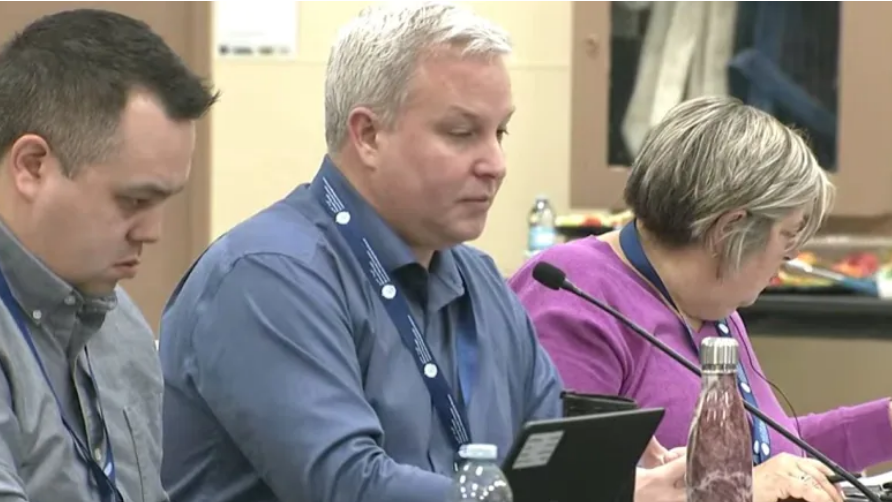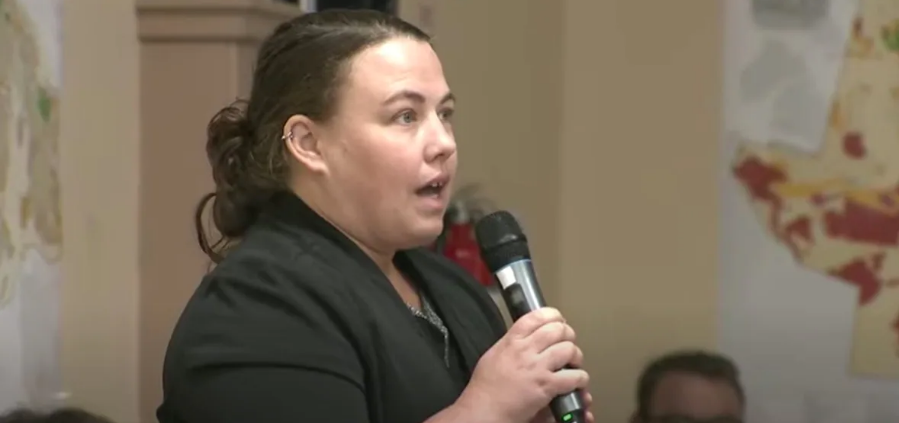Feds slammed at Nunavut land use hearing, critics say it favours development over caribou protection

The federal government received pointed criticism for its position on caribou protection under the draft Nunavut Land Use Plan during its presentation Tuesday in Thompson, Man.
Questions from those at the Nunavut Planning Commission hearing saw Spencer Dewar, director of resource management for Crown-Indigenous Relations and Northern Affairs Canada, defending the federal government’s position on mineral development, existing rights and conservation under the land use plan.
“Land use restrictions in key caribou habitats should have the least possible impact on future economic opportunities for Nunavummiut while still protecting the economic, cultural and ecological benefits of caribou and their habitat, ” Dewar said in his presentation to the hearing.
The proposed land use plan includes many existing mineral tenure and mining proposals that overlap and would conflict with any year-round prohibitions on exploration and mining in caribou habitats, he said.
Three of four active mines in Nunavut overlap with limited use areas. They have all the necessary regulatory permitting, he said, and “additional prohibitions are unnecessary and confusing.”
Dewar said Ottawa’s recommendations include rezoning all areas with existing mineral tenures in limited use zones to mixed use.
He said the land use plan “shouldn’t lock up existing mining tenures.”

But that position did not receive a warm reception from several community participants, including Katie Rasmussen, technical advisor to the Athabasca Denesuline.
“It sounds like with those existing tenures, you are relying on the status quo to protect caribou even in this critical calving habitat,” Rasmussen said.
“What we heard here today and yesterday … from Indigenous communities, is that these grounds are sacred and need to be respected and protected.”
Caribou herds are declining across their range, she said, adding that “habitat protection is one of the most fundamental ways to protect the caribou” — and is even written into the federal Species at Risk Act, she added.
The status quo of the current environmental regulatory process is not working she said, and it’s produced declines in caribou.
“Given that knowledge, given how important these caribou are to people,” she said, “how can Canada not justify taking this opportunity to take a stand for caribou before there are shovels into the ground?”
‘We do want to protect the caribou’
Dewar responded that the Canadian government does recognize the importance of caribou.
“We’ve heard that through the hearings in Nunavut and here today and this week,” he said. “It’s something we take seriously too and we do want to protect the caribou.”
But he said the caribou decline could have many reasons besides development.
“Our position is not development at all costs, but responsible development,” Dewar said.
Henry Coman, Nunavut’s assistant deputy minister Department of Environment, said in his presentation that the land use plan’s zoning needs to better balance conservation with economic goals.
The territorial government wants to see fewer prohibitions on development, “where insufficient evidence exists to justify these,” he said.
That’s because the restrictions to what can and can’t take place could also limit access to development, jobs and infrastructure projects, such as roads, he said.
Finalizing Nunavut’s land use plan is a legal requirement under the Nunavut Land Claims Agreement between Nunavut and the Crown.
The plan will spell out what land will be protected and what land will be open for development across all of Nunavut.
It divides the Nunavut Settlement Area into three parts: limited use areas, conditional use areas and mixed-use areas. Earlier drafts of the plan, which has been in the works since 2007, were released in 2012, 2014 and 2016.
The Nunavut Planning Commission wrapped up its hearing in Thompson yesterday.
Previous hearings ran from Sept. 12-15 in Cambridge Bay and Sept. 19-23 in Rankin Inlet. The hearings move to Pond Inlet for Oct. 24-27 and Iqaluit Nov. 14-19.
The complete hearings can be watched on YouTube in English and in Inuktitut.
Related stories from around the North:
Canada: Northern Indigenous Guardians initiatives among those to share in Ottawa funding, CBC News



